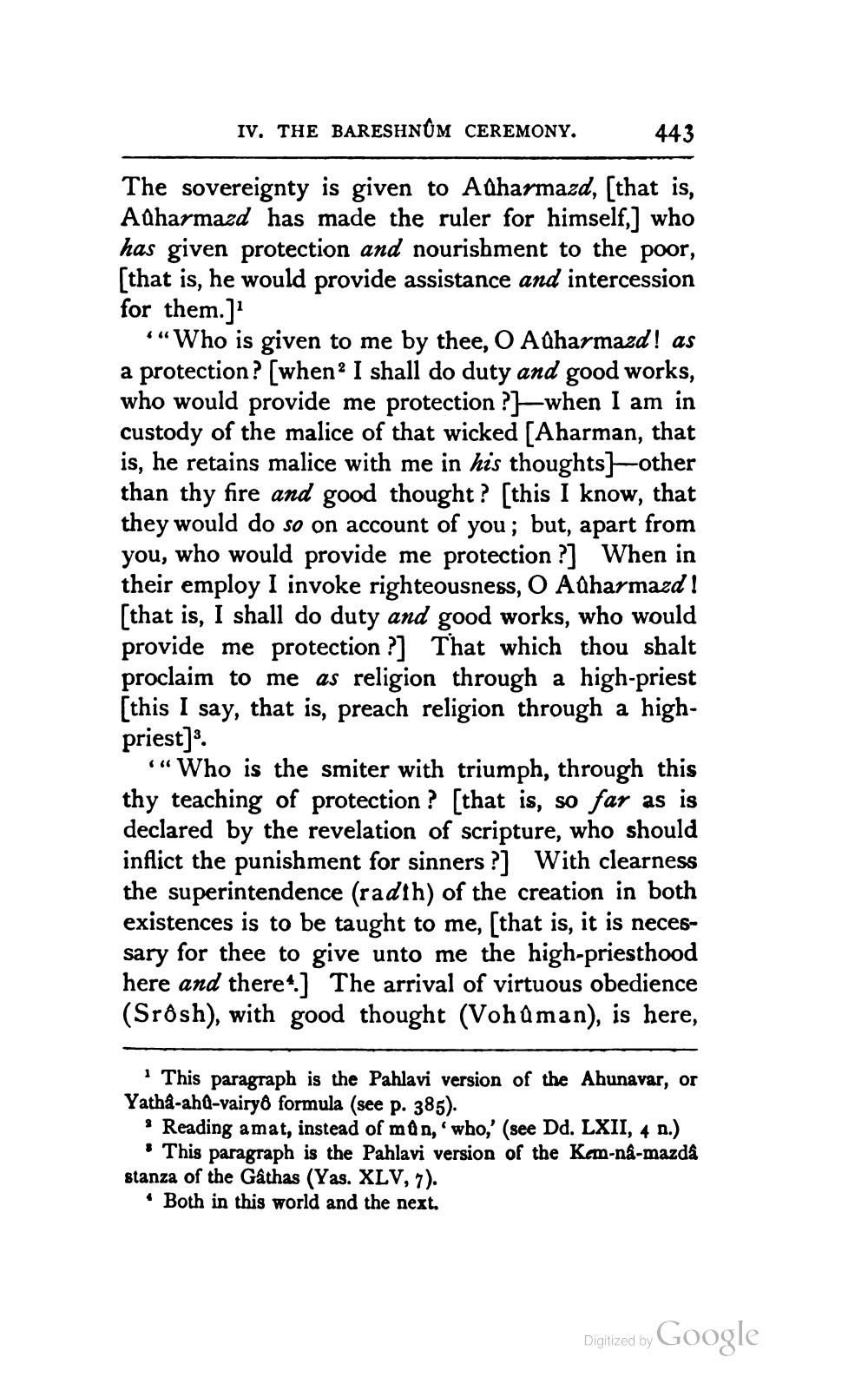________________
IV. THE BARESHNOM CEREMONY.
443
The sovereignty is given to Adharmazd, (that is, Adharmazd has made the ruler for himself,] who has given protection and nourishment to the poor, (that is, he would provide assistance and intercession for them.
“Who is given to me by thee, O Adharmazd! as a protection? (when? I shall do duty and good works, who would provide me protection ?)—when I am in custody of the malice of that wicked [Aharman, that is, he retains malice with me in his thoughts other than thy fire and good thought ? [this I know, that they would do so on account of you; but, apart from you, who would provide me protection ?] When in their employ I invoke righteousness, O Adharmazd! [that is, I shall do duty and good works, who would provide me protection ?] That which thou shalt proclaim to me as religion through a high-priest (this I say, that is, preach religion through a highpriest]S.
«“Who is the smiter with triumph, through this thy teaching of protection ? (that is, so far as is declared by the revelation of scripture, who should inflict the punishment for sinners ?] With clearness the superintendence (radth) of the creation in both existences is to be taught to me, (that is, it is necessary for thee to give unto me the high-priesthood here and there'] The arrival of virtuous obedience (Srôsh), with good thought (Vohûman), is here,
This paragraph is the Pahlavi version of the Ahunavar, or Yatha-ahQ-vairyð formula (see p. 385).
. Reading amat, instead of môn, who' (see Dd. LXII, 4 n.)
. This paragraph is the Pahlavi version of the Kem-na-mazda stanza of the Gathas (Yas. XLV, 7).
• Both in this world and the next.
Digitized by Google




